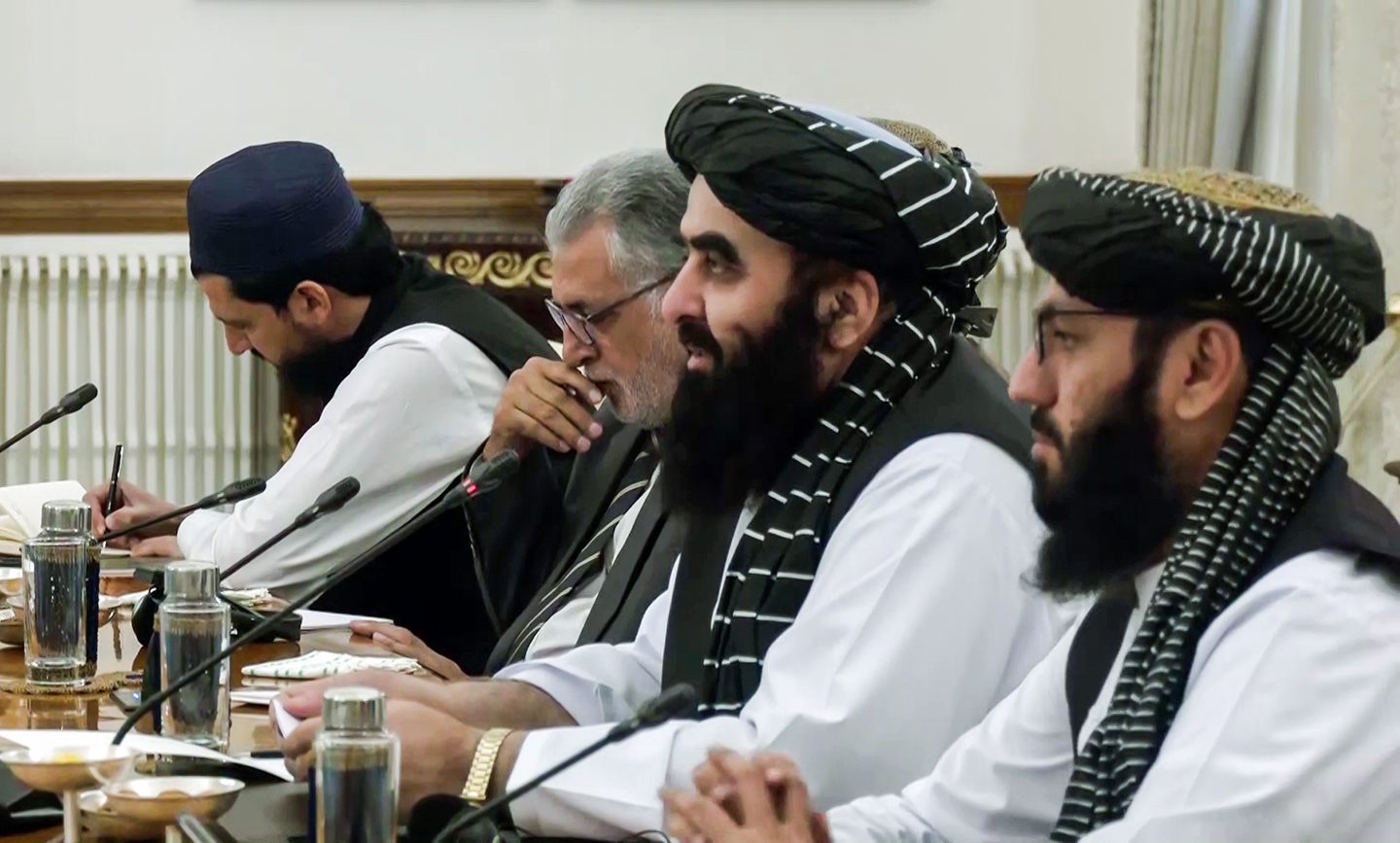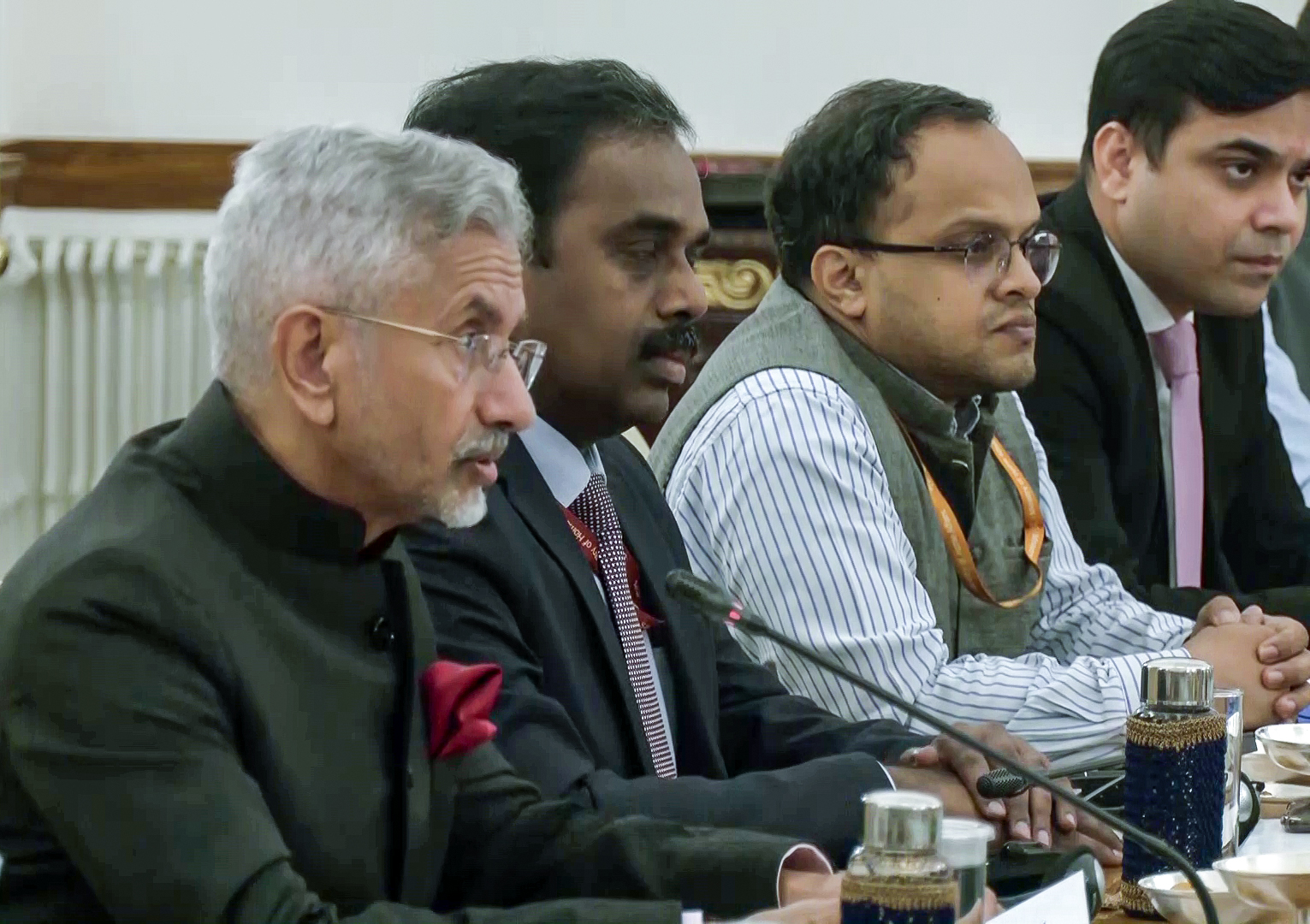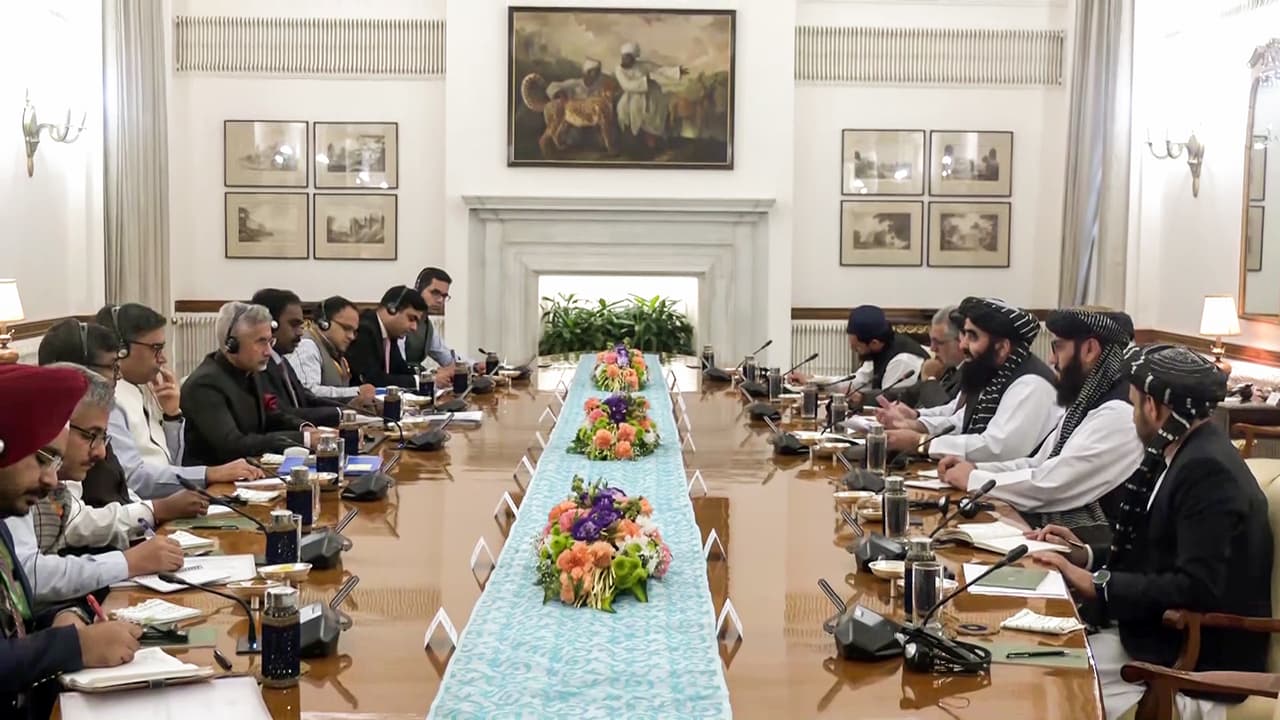Experts highlight India-Afghanistan historic ties, humanitarian support, and strategic cooperation amid Taliban FM Amir Khan Muttaqi’s visit. Analysts say India’s engagement balances aid, security, and regional influence without formal recognition.
New Delhi: Afghanistan’s acting foreign minister, Amir Khan Muttaqi, arrived in Delhi on Wednesday for a week-long visit, marking the first ministerial-level trip from the Taliban-led government to India since the group assumed power in Kabul in August 2021. The visit, scheduled until October 16, includes high-profile meetings with External Affairs Minister S. Jaishankar and National Security Adviser Ajit Doval, alongside visits to iconic sites like the Taj Mahal in Agra and the Darul Uloom Deoband seminary. Beyond diplomacy, Muttaqi will engage with business leaders and the Afghan community in India.
While India has not formally recognized the Taliban government, this visit signals a pragmatic shift in India’s Afghanistan policy, balancing humanitarian engagement with strategic and security interests. Asianet Newsable English spoke to experts to understand the visit’s implications.

Historic Ties and Humanitarian Focus
Former diplomat and Vivekananda International Foundation (VIF) distinguished fellow Anil Trigunayat highlighted the long-standing civilizational and people-to-people ties between India and Afghanistan:
“India and Afghanistan relations are historic and civilizational and especially marked by People to people connect. This has remained the key fulcrum irrespective of the regimes there.”
Trigunayat emphasized that India’s continued involvement in Afghanistan is crucial, even without formal recognition of the Taliban:
“Although India, like most of the world, has not officially recognized the current regime. It is imperative that for the sake of the Afghan people India remains invested also as a first responder in natural disasters and tragedies.”
India has contributed over USD 3 billion to Afghanistan’s reconstruction and capacity building—a gesture recognized and appreciated by the Taliban regime. Trigunayat noted:
“India is the only country which has been a major actor in reconstruction and capacity building investing over USD3 billion. This is also highly appreciated by the Taliban regime.”
“In the past, bilateral meetings and other formats were held, including telecon between foreign ministers of the two countries as well as meeting of Indian Foreign Secretary with FM Muttaqi. Now this visit is equally important when bilateral and regional issues and prospects for greater cooperation in humanitarian assistance, capacity building, security and counter terrorism as well as status of their embassy and consulates and issues might be on the cards,” the former ambassador added.
Strategic Engagement and Security Interests
Dr. Bharti Chhibber, Professor of International Relations at the University of Delhi, emphasized that the visit is part of a broader Taliban effort to engage with major powers:
“Afghanistan’s Taliban government is looking to develop its relations with prominent powers like India and also looking at some legitimacy for the Taliban government.”
For India, engagement goes beyond humanitarian support:
“It has already been providing technical and humanitarian assistance, now it’s more proactive policy of engagement with Afghanistan in terms of enhancing strategic and security interests and to ensure that Afghanistan territory is not used for activities like terrorism,” Dr. Chhibber added.

India Upgrades Kabul Mission: A Diplomatic Milestone
During bilateral talks, External Affairs Minister S. Jaishankar announced a major step in India-Afghanistan relations: “India is fully committed to the sovereignty, territorial integrity and independence of Afghanistan… To enhance that, I am pleased to announce today the upgrading of India’s Technical Mission in Kabul to the status of Embassy of India.”
Welcoming Muttaqi and his delegation at Hyderabad House, Jaishankar underlined the enduring friendship between the two nations: “Your visit marks an important step in advancing our ties and affirming the enduring friendship between India and Afghanistan.”
Scroll to load tweet…
The minister also unveiled a series of development and humanitarian initiatives, including six new projects, details of which will be shared after the talks.
“India has long extended support for the health security of Afghanistan, including during the Covid pandemic. We are now ready to commit to six new projects… A gift of 20 ambulances is another gesture of good will and I would like to handover 5 of them to you personally as a symbolic step. India will also provide MRI and CT scan machines to Afghan hospitals and deliver vaccines for immunisation and cancer medicines. We have also supplied drug rehabilitation materials through UNODC and are open to doing more,” Jaishankar said.
Addressing cross-border terrorism, he stressed the need for coordinated action: “We must coordinate efforts to combat terrorism in all its forms and manifestations… Continued food assistance, with a new consignment arriving in Kabul today.”
The aid commitments also include support for earthquake-affected areas, reconstruction of homes, and assistance for forcibly repatriated Afghan refugees.
Sanctions Exemption Enables Historic Visit
In 2001, the United Nations Security Council had imposed sanctions on Muttaqi, including a travel ban. For this visit, the Taliban Sanctions Committee, chaired by Pakistan with Russia and Guyana as vice-chairs, granted a temporary exemption, allowing him to stay in India for a week.
Zia Ahmad Takal, head of public relations at the Afghanistan Foreign Ministry, told Tolo News that the visit would see “expanding relations between Kabul and New Delhi.”
